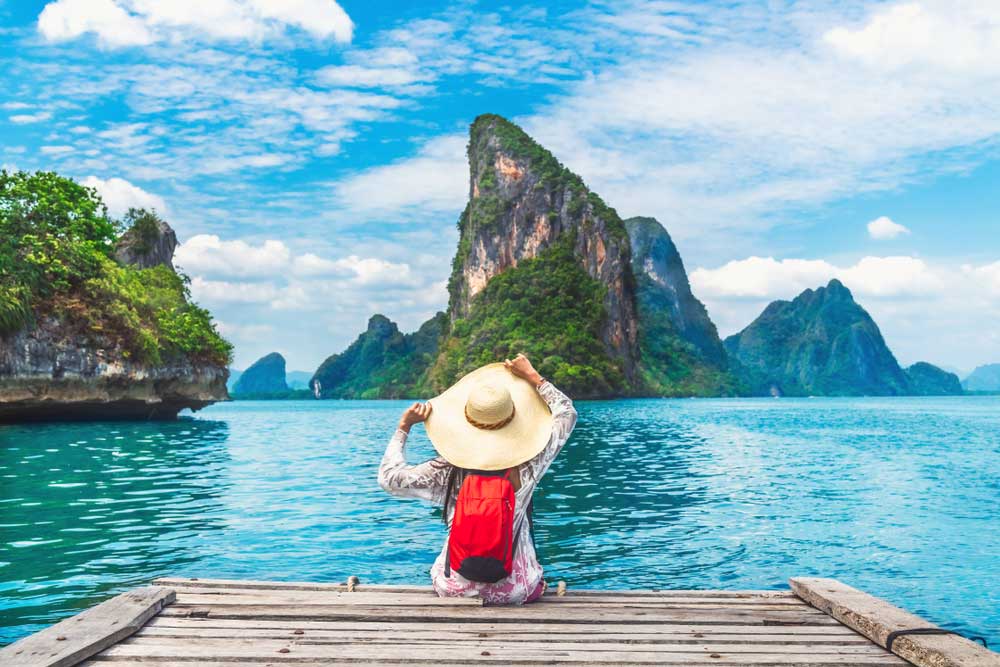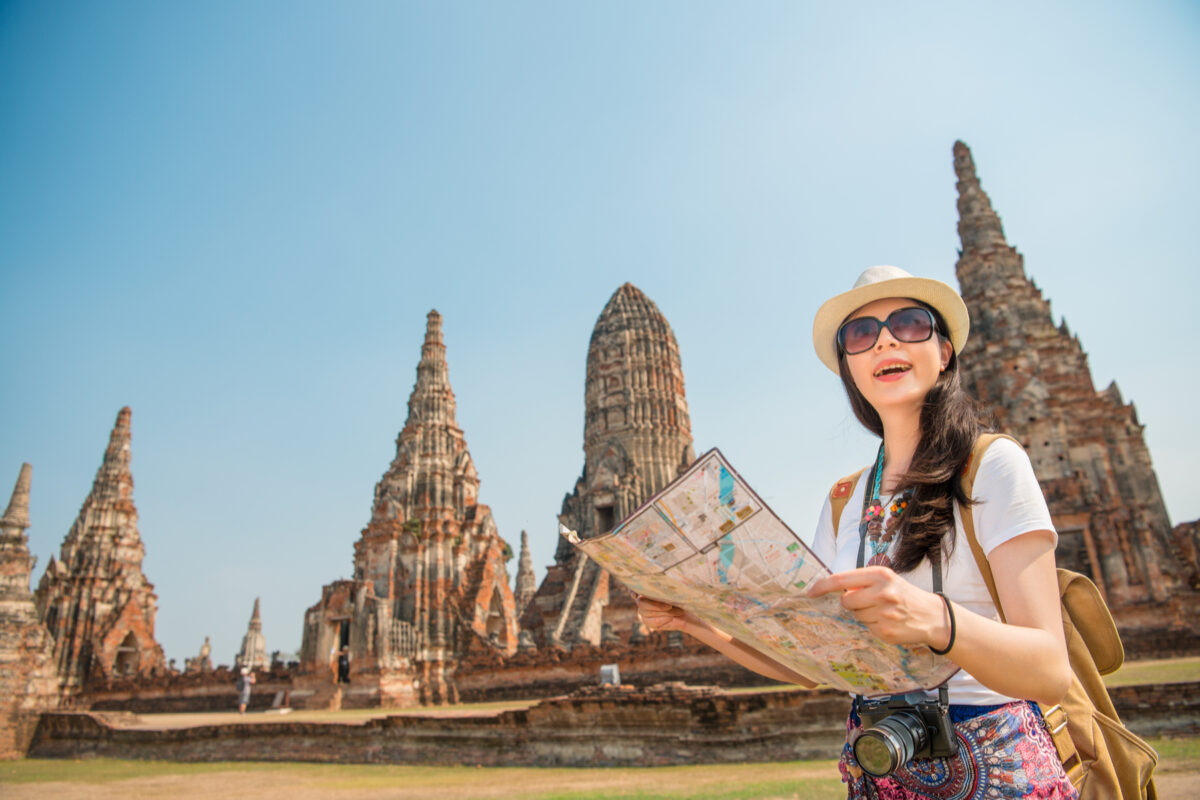Thailand is blessed with many attributes that make it a key tourist destination in Asia. From the beautiful beaches to magnificent Buddhist temples, there are many reasons tourism is big business here. The government has instituted a streamlined process when it comes to visa requirements so tourists can understand what is needed to travel into the country.
According to ThaiVisaExpert, Foreigners coming to Thailand for a short stay may apply for a Tourist Visa. If expecting to stay longer, then consider a Non-Immigrant O visa. Note that there have however been some ongoing changes due to the pandemic situation. Be sure to always check for updates before travel as the requirements may change quickly.
Thailand Tourist Visa

Source: laxojo.com
Tourists traveling abroad are not expected to stay for a long period. To visit Thailand as a tourist requires that you acquire a visa. The tourist visa is meant for foreigners that are visiting for recreational purposes and is valid for up to 60 days. They are obtained through the Thai embassy or consulate in the traveler’s resident country. Once obtained, it will need to be presented upon entry into Thailand.
Some countries are exempt from having to apply for a tourist visa. Tourists from these countries can receive a visa exemption stamp when entering the country at an international airport or border. They must however have obtained a certificate of entry (COE) from the Thai embassy or consulate in their country before travel. The visa exemption will allow them to stay in Thailand for 30 days. 64 countries qualify for this exemption. They include:
- Andorra
- Argentina (90 days)
- Australia
- Austria
- Bahrain
- Belgium
- Brazil (30 days and 90 days)
- Brunei
- Cambodia (14 days only)
- Canada
- Chile (90 days)
- Czech Republic
- Denmark
- Estonia
- Finland
- France
- Germany
- Greece
- Hong Kong
- Hungary
- Iceland
- Indonesia
- Ireland
- Israel
- Italy
- Japan
- Korea (30 days and 90 days)
- Kuwait
- Laos
- Latvia
- Liechtenstein
- Lithuania
- Luxembourg
- Macau
- Malaysia
- Maldives
- Mauritius
- Myanmar (14 days only)
- Monaco
- Mongolia
- Netherlands
- New Zealand
- Norway
- Oman
- Peru (30 days and 90 days)
- Philippines
- Poland
- Portugal
- Qatar
- Russia
- San Marino
- Singapore
- Slovak Republic
- Slovenia
- South Africa
- Spain
- Sweden
- Switzerland
- Turkey
- Ukraine
- United Arab Emirates
- United Kingdom
- United States
- Vietnam

Source: tuneprotect.co.th
19 countries qualify for a visa on arrival with permission to stay for up to 15 days. This means that passport holders from these countries may apply for their visas on arrival in Thailand at specified airports and immigration checkpoints. The travelers are however required to have a certificate of entry (COE) issued in the Thai embassy or consulate in their country. Eligible countries include:
- Bulgaria
- Bhutan
- China
- Cyprus
- Ethiopia
- Fiji
- Georgia
- India
- Kazakhstan
- Malta
- Mexico
- Nauru
- Mauritius
- Papua New Guinea
- Romania
- Saudi Arabia
- Taiwan
- Uzbekistan
- Vanuatu
Requirements to Take a Tourist Visa

Source: houseoftours.com
You will need to verify the requirements for applying for a tourist visa from the Thai embassy or consulate in your country. Generally, these documents should include:
- Passport with at least 6 months validity
- One 4x6cm photograph of the tourist visa applicant
- Completed visa application form
- Confirmed return ticket
- Proof of hotel or other private accommodation
- Evidence of financial means to support yourself
- Visa application fee
The minimum proof expected of financial means is at least 20,000 Thai baht for an individual traveler and 40,000 Thai baht for a family traveling on a tourist visa. Those traveling on visa exemption or visa on arrival must meet a threshold of 10,000 Thai baht per person and 20,000 Thai baht for family.
Certificate of Entry (COE)

Source: thaipbsworld.com
Foreign travelers to Thailand are also expected to acquire a COE alongside a visa. This should be applied for at least 5-15 days before the date of travel. It is applied online through your local Thai embassy or consulate. You will need to complete the online form and upload certain supporting documents. The supporting documents may include a copy of your passport, valid visa, and Covid-19 travel insurance. After this is approved, you will then need to upload additional documentation including flight details and hotel reservations.
Quarantine Measures
Thailand has instituted quarantine measures for some travelers coming into the kingdom. Travelers arriving by air from 63 low-risk countries do not require quarantine if fully vaccinated under the Test and Go program. They will however need to remain at their booked hotel for a day on arrival to allow for the results of their Covid test to come out. Once they test negative they are free to proceed with their travel.
Those from non-listed countries but are fully vaccinated may also enter Thailand without the need for quarantine under the Sandbox program. Any other unvaccinated traveler is to undergo mandatory quarantine for 10 days. Note that these conditions may quickly change so check measures before travel.
The Non-Immigrant O visa

Source: w-lawthai.com
If you want to remain in Thailand for a period longer than what the tourist visa allows, you have two options. You can apply for a Non-Immigrant O Visa or an extension. This visa can be applied for in your resident country, from within the Thai kingdom, or a neighboring nation.
When applying for a non-immigrant O visa, you will initially be granted a 90-day single entry visa. Note that there are different categories of non-immigrant O visas for different purposes. This can include:
- For voluntary work
- Visiting to stay with Thai family
- Retirement visa
- Medical treatment
- Being part of a judicial process
- Diplomat’s housekeeper
These visas are normally initially granted with permission to stay for up to 90 days. Travelers seeking an exemption must apply at the immigration office, with the decision being at the discretion of the immigration official handling the application.
What if I want to extend my stay?

Source: nationalgeographic.com
If you wish to stay for longer than the 60-day permission to stay stamped by immigration at the airport or border, then you may opt to apply for a tourist visa extension. It is expected that you should depart from the country on or before the expiration of your permission to stay. If you want an extension, you need to apply for it before this expiry.
Normally, this extension is applied for at the Office of Immigration Bureau in Bangkok. However, due to the prevailing Covid-19 pandemic, the government is allowing for 60-day Covid-19 extensions to be applied for at any immigration office. The decision to approve or decline this extension is at the discretion of the immigration official handling your application. The application should be accompanied by a 1,900 Thai baht fee. Any extension of stay granted will commence on the date of application. The deadline for 60-day Covid-19 extension applications is January 25, 2024.























